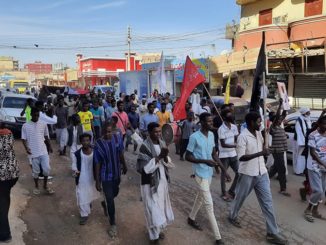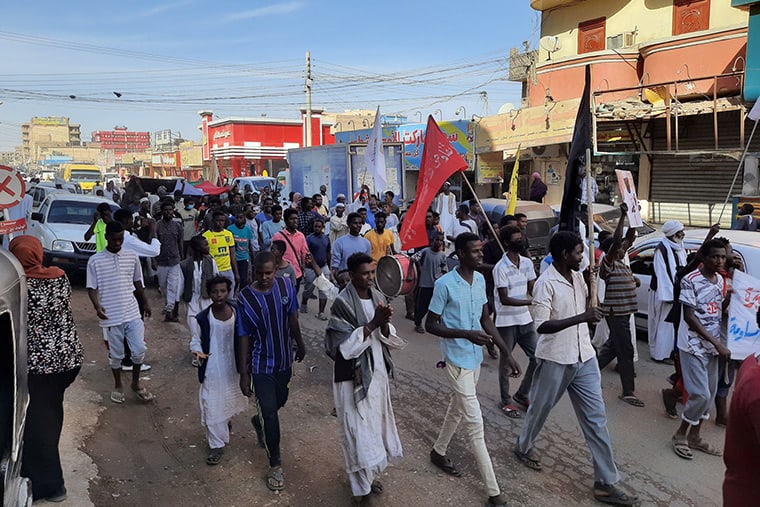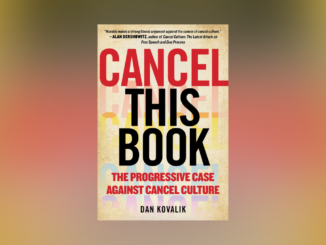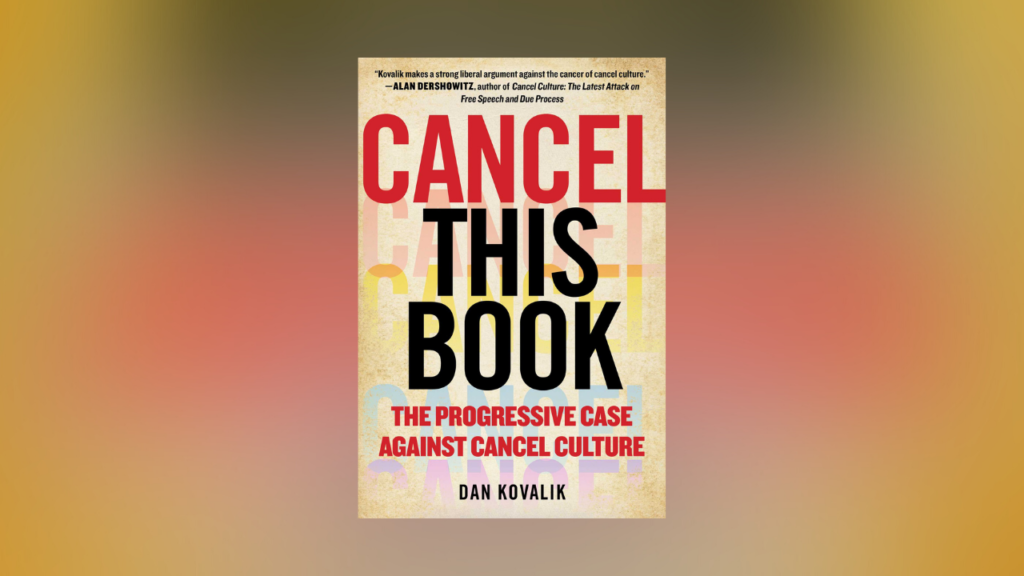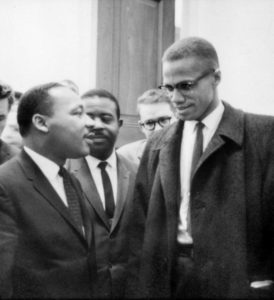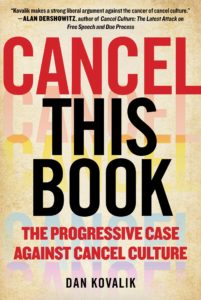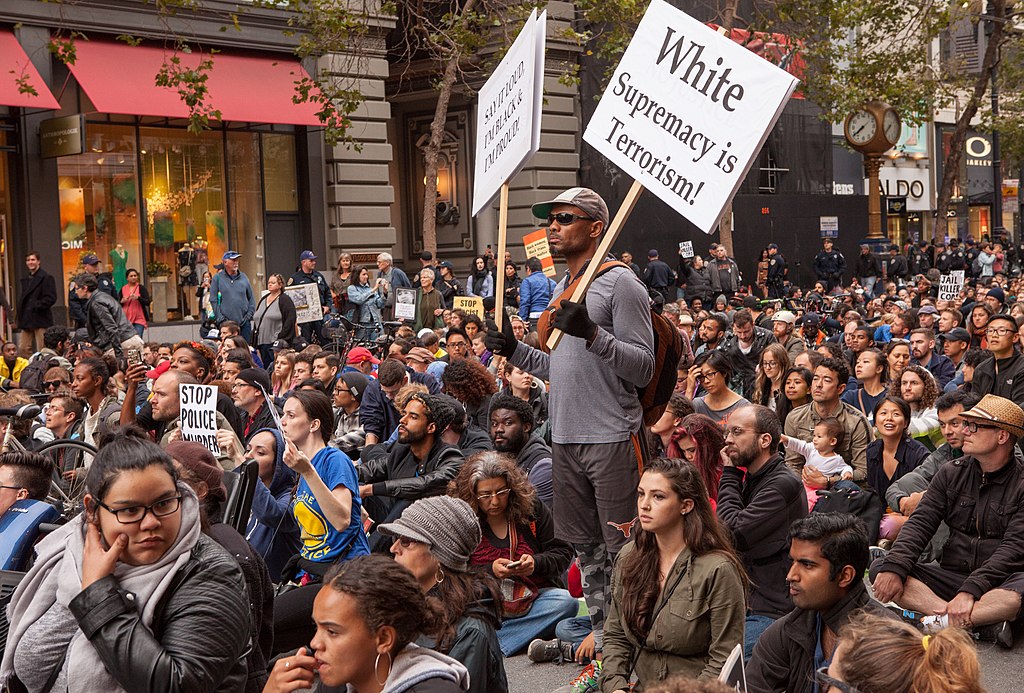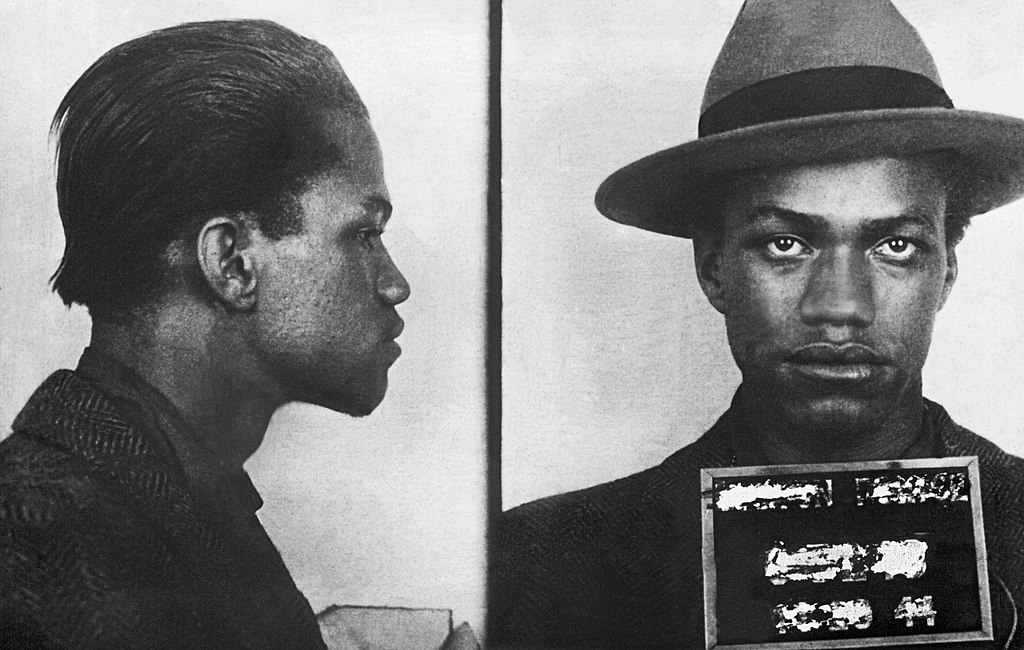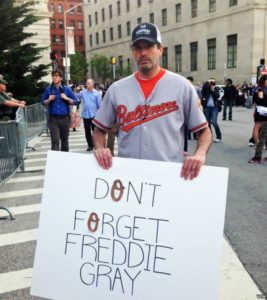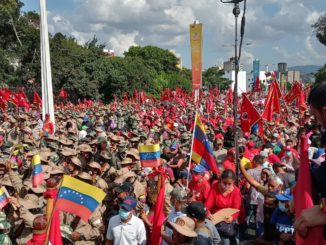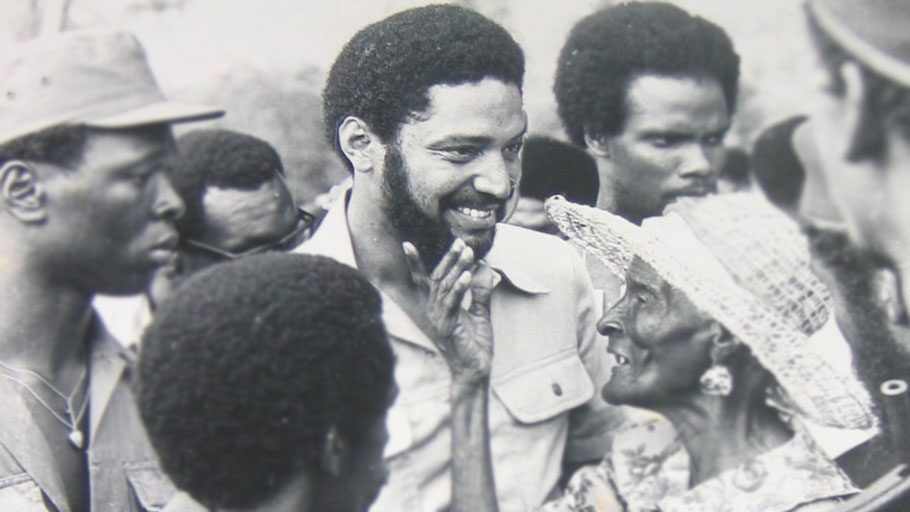
Editor’s Note: The writer recently visited Grenada and the following is his analysis.
Today marks the 38th anniversary of 7,300 U.S. troops—accompanied by U.S.-trained Caribbean Community (CARICOM) soldiers calling themselves, “The Caribbean Peace Force”—invading the tiny island of Grenada. What lessons can we learn from the 4-and-a-half-year revolution launched in the land of Julio Fedon, Jacqueline Creft, Maurice Bishop and the 112,000 people of Grenada? In a hemisphere on fire, with class struggle and anti-imperialism on full display from the streets of Medellín to Mexico City, where does Grenada line up in the global class struggle in the 21st century?
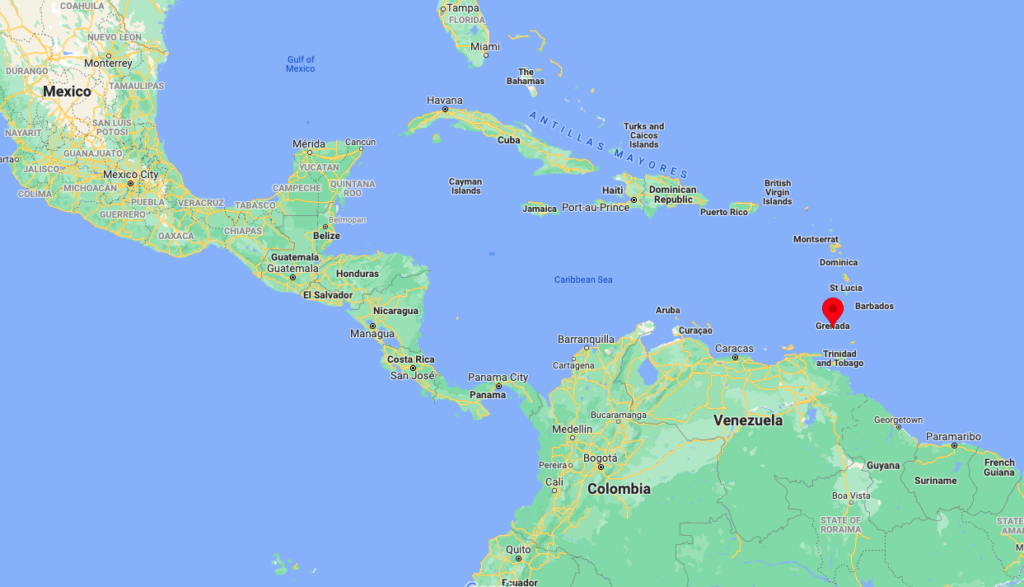
The “Revo”
On March 13, 1979, the leaders of Grenada’s New Jewel Movement overthrew the hated and feared neocolonial puppet, Prime Minister Eric Gairy, setting in motion a memorable revolutionary experiment in Caribbean history. Those who lived through the 1979-83 Grenadian Revolution were forever transformed.
Grenadian and University of West Indies Professor of Political Science Wendy Grenade charts some of the gains made during the short period:
“Raising levels of social consciousness; building a national ethos that encouraged a sense of community; organising [sic] agrarian reform to benefit small farmers and farm workers; promoting literacy and adult education; fostering child and youth development; enacting legislation to promote gender justice; constructing low income housing and launching house repair programmes; improving physical infrastructure and in particular the construction of an international airport; providing an environment that encouraged popular democracy through Parish and Zonal Councils etc.”
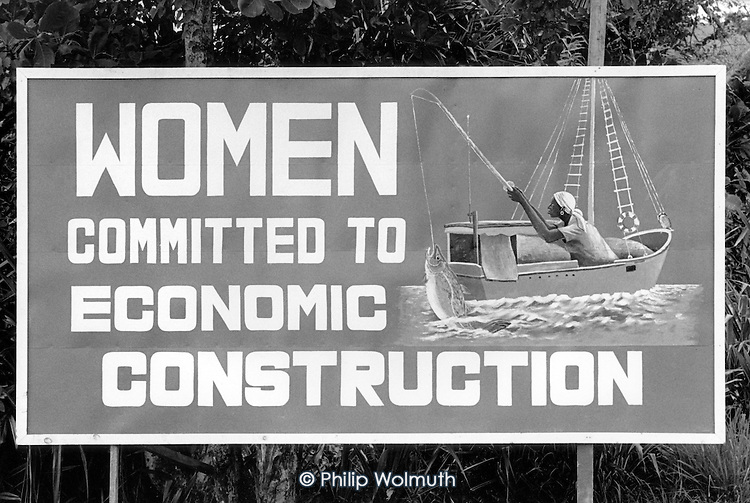
Slogans and billboards emblazoned the country’s landscape:
- “Never Too Old to Learn”
- “Education Is Production, Too”
- “Every Worker a Learner”
- “Women Committed to Economic Construction”
Angela Davis captured what “the revo” meant to the Black nation within the United States in saying, “The experiences that I’ve had here in Grenada have confirmed in a very powerful way where we are headed, what the future of the entire planet ought to look like—this beautiful, powerful militant revolution.”
The Children who Fought to Save #MauriceBishop 🇬🇩 Glen “Pharaoh” Samuel was one of them who barely escaped the 1983 massacre.
#CIA hard at work in #Grenada pic.twitter.com/BoMpSnWQU6 — Danny Shaw (@dannyshawcuny) August 24, 2021
Glen “Pharoah” Samuel was a middle-school pupil at the time and was part of a crowd of students who raced to save Maurice Bishop, Jacqueline Creft and other revolutionary leaders from execution at Fort George. Sitting down at a local hangout in the capital of Saint George’s, he explained to this writer Grenada’s role in the global class struggle known as “The Cold War”:
“As a Black, English-speaking country very close to America, imagine America has a population of over 42 million Afro Black Americans. Obviously they understand our swag because we are all Black people, African people. So Ronald Reagan feared the situation and we had just finished our international airport, which was sponsored by Cuba and the Soviet Union.”
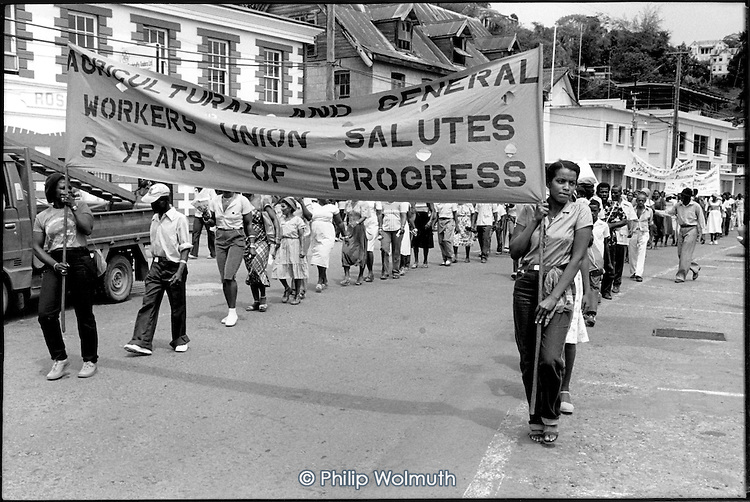
Internationalist educator Chris Searle’s book, Grenada Morning: A Memoir of the “Revo”, details the accomplishments of the revolution in overcoming a history of colonial and neocolonial servitude and degradation. Gerhard Dilger of the Rosa Luxemburg Foundation studied the revolutionary contributions of poets and calypso singers from 1979 to 1983. Dr. Horace Campbell’s Rasta and Resistance highlights the participation of the Rastafari community, long oppressed under the Gairy dictatorship, in the Revolutionary People’s Government and Army.
All of Grenada was ablaze with the flames of revolutionary optimism, unity and growth.
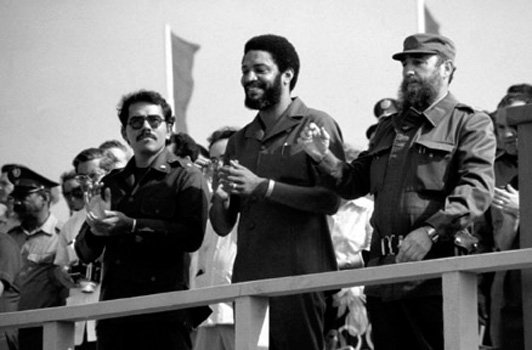
The Invasion: An Attempt to Kill Hope
Alarmed at the existence of another workers’ state in Washington’s “backyard,” Ronald Reagan and the U.S. foreign policy establishment were hellbent on overthrowing the 4-and-a-half-year revolution.
Internationalist scholar Carlos Martinez artfully captures the U.S. campaign of psychological warfare and saber rattling. In 1981, Reagan mobilized over 120,000 troops, 250 warships and 1,000 aircraft to Vieques, an island that is part of Puerto Rico, for a mock invasion. They code-named the operation “Amber and the Amberines” because Grenada’s official name is Grenada and the Grenadines, as it includes the two smaller islands of Carriacou and Petit Martinique. U.S. intelligence worked overtime to monitor cracks in the revolutionary leadership and create divisions to exploit them, ultimately leading to the assasination the revolution’s top leadership. 18 civilians were killed when the U.S. Navy bombed a hospital for patients with mental challenges. Meanwhile, 24 Cuban construction workers were murdered.
It was a David-versus-Goliath scenario, but David stood up to the invasion. Maurice Bishop sounded the battle cry:
“This land is ours, every square inch of its soil is ours, every grain of sand is ours, every nutmeg pod is ours, every beautiful young Pioneer who walks on this land is ours. It is our responsibility and ours alone, to fight to defend our homeland.” (p. 283, Maurice Bishop Speaks, Pathfinder Press)
A break in the top leadership of the New Jewel Movement helped distract cadres while Reagan’s accusation that 600 U.S. medical students were in danger provided cover for a “humanitarian intervention” that illegally assaulted a democratic state.
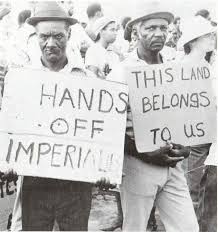
The U.S. military project then helped prop up a pro-U.S. power structure that sought to dismantle the very memory of the revolution. Artist Suelin Low Chew Tung writes, “…images of the revolution years were deliberately erased from the landscape… Three decades later, as far as local visual art records are concerned, it is as if the Grenada Revolution never happened.”
This writer’s experience visiting Grenada in August made clear today’s young people are disconnected from Grenada’s definitive break with neo-colonialism. To many youths, this appears to be ancient history. How many Grenadians born after 1983 fully comprehend their small homeland has inspired the world?
The Washington Examiner, owned by right-wing billionaire Philip Anschutz, captures how U.S. ruling circles viewed military action against Grenada as a strategic, easy victory after defeat in Vietnam and Iran. In a September 12 editorial, Michael Rubin of the American Enterprise Institute advocated for a Grenada-like invasion into a yet-to-be-determined location to shore up respect for the United States after the humiliating defeat of empire in Afghanistan, writing, “Where and under what circumstances might a future commander in chief send troops to draw a new red line for America’s enemies?” He ominously ended the article, warning, “There will be a new Grenada; the question to ponder is where and when.”
The Blackout: Liquidating Memory
On August 26, this writer sat down with Dr. Terence Marryshow, captain of the People’s Revolutionary Army, which was responsible for the personal security of Maurice Bishop and the New Jewel Movement leadership. Marryshow also was a former political leader of the Maurice Bishop Patriotic Movement (MBPM) and grandson of T.A. Marryshow, father of the West Indian Federation. He elaborated on Pan-Caribbeanism in Grenada today:
“Caribbean leaders today are not pursuing this goal as vigorously as they ought to in the interests of the people of the Caribbean. The problem is many of them are not willing to give up that lofty position that they hold. During the period of the revolution there was certainly a great effort with the People’s Revolutionary Government led by Maurice Bishop to forge that kind of Caribbean integration. But with his demise there is no real voice out there [in Grenada] championing that cause. Today leaders are hardly concerned with that. Yes, we do have CARICOM which in the final analysis is really a talk shop because nothing concrete decisions and progress for the people comes out of it.”
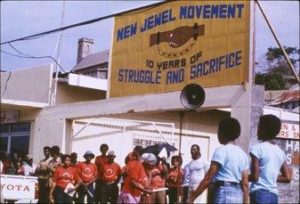
In the extensive interview, the Cuban-trained physician stated, “Concerning teaching on the revolution in the schools, there is a complete blackout. There is a concerted effort not to speak about it, except for groups like The Maurice Bishop and October 19th Martyrs Foundation, the Grenadian Cuba Friendship Society and the Maurice Bishop Patriotic Movement. But there is no space on the [mainstream school] curriculum today for teaching anything about that revolutionary period.”
A soldier of the People’s Revolutionary Army, nicknamed Salt, who chose to remain anonymous and only wanted his nickname published, remembered what it meant to stand up to the hegemon of the north. He remembered the Center for Popular Education, his own exposure to critical Marxist texts and the day the call came from his superior officers to prepare to defend the country. On censorship today, Salt said, “The educators are not documenting anything and are not teaching our young people about the progress the revolution made.”
To add insult to injury, the invaders and new rulers of Grenada disappeared the bodies of key New Jewel Movement leaders. Local community leaders showed this writer where the invaders and their underlings had disappeared the body.
Carlin “Lely” Matthew asks: what did the U.S. forces of occupation do with #MauriceBishop’s body? This remains a mystery almost 40 years after the execution of the #Grenadian revolutionary leader. #Grenada 🇬🇩 pic.twitter.com/ukF1AS4yyl
— Danny Shaw (@dannyshawcuny) August 22, 2021
Bishop’s mother, Alimenta, captured the horror of not knowing the location of her son’s body in an interview with Grenadian news outlet, NOW Grenada. Having already lived through her husband’s murder at the hands of Prime Minister Eric Gairy and the same U.S.-backed state machinery, she said “I could go to the grave and say this is the spot where my husband is buried, but I can’t say that for my son.” This was what Marryshow and Grenadians remember as the triple assassination of their revolution.
Which Way Forward?
In 2019, the Venezuelan government published a bilingual tribute to Maurice Bishop and the October martyrs in Correo del Alba (Message of ALBA).
El #29Mayo de 1944, nace en Grenada el político revolucionario Maurice Bishop, encabezó junto al New Jewel, la rebelión para derrocar al régimen de Eric Gairy. Erigió un gobierno revolucionario popular. Bishop es traicionado y ejecutado y Grenada fue invadida por tropas de EEUU pic.twitter.com/EdPuFIOMgm
— Correo del Alba #CorreoDelAlba (@correodelalba) May 29, 2020
Previously unpublished testimonies of dozens of cadres and combatants of the revolutionary process express how it brought Grenada closer to Africa and all oppressed nations, how Venezuela is a Grenada of today, and Grenada’s defiant participation in multi-state organizations such as the Community of Latin American and Caribbean States (CELAC), the Bolivarian Alliance for the Peoples of Our America (ALBA), television network TeleSUR and Caribbean oil alliance PetroCaribe. Today, Grenada is charting a path of friendly relations both with the United States and with the blockaded Bolivarian nations of Venezuela and Cuba, attempting to emerge from centuries of colonialism and decades of U.S. hybrid war. What is clear is the Grenadian Revolution is an example that the colonized and silenced can stand up, organize and win. Like the Soviet, Chinese, Cuban, Nicaraguan and other revolutions, it is our responsibility to study, remember, learn the lessons and emulate the spirit of these earth-shaking processes that our class enemies can never take away from us.
Danny Shaw is a professor of Caribbean and Latin American Studies at the City University of New York. He frequently travels within the Americas region. A Senior Research Fellow at the Center on Hemispheric Affairs, Danny is fluent in Haitian Kreyol, Spanish, Portuguese and Cape Verdean Kriolu.

